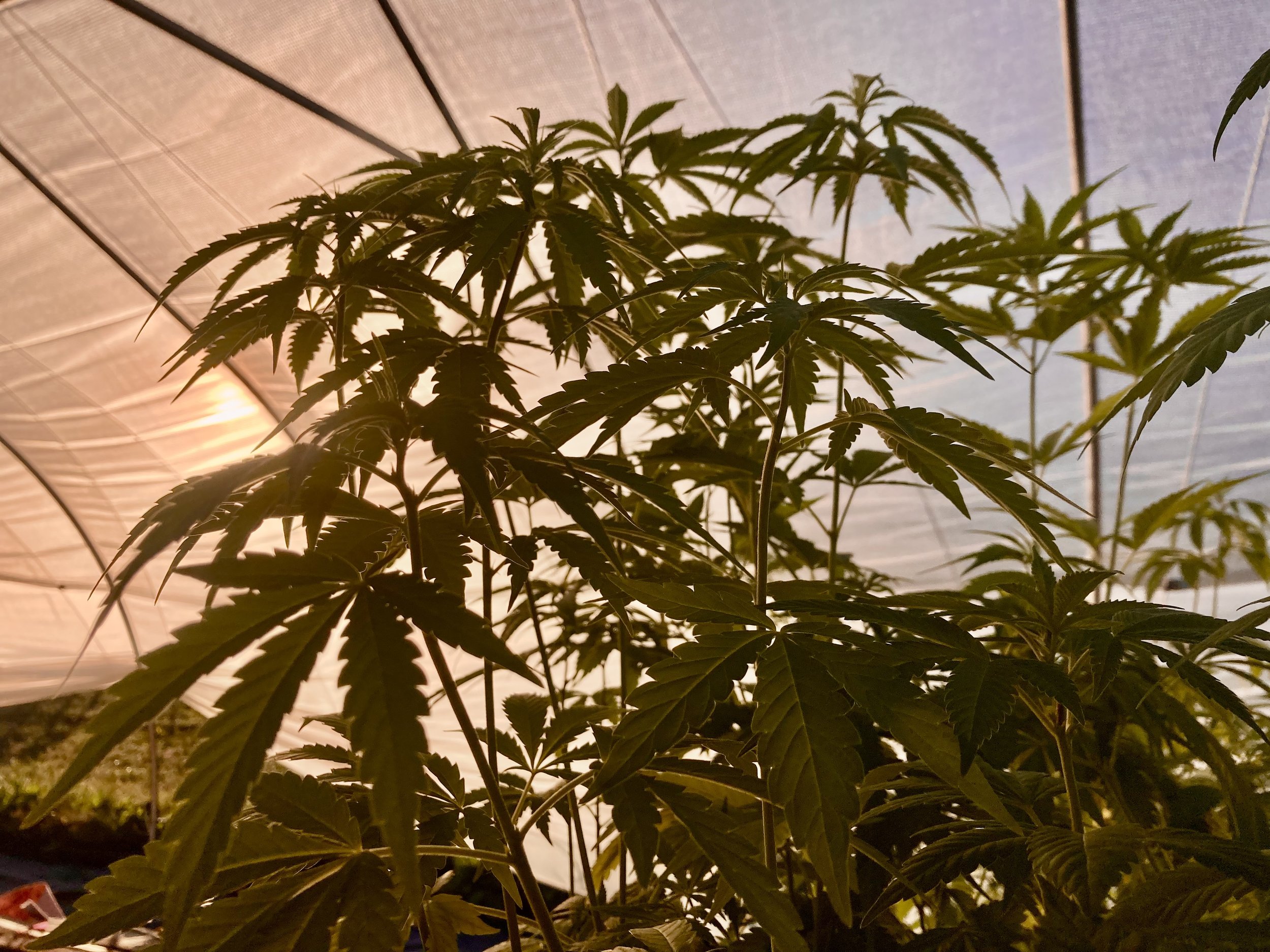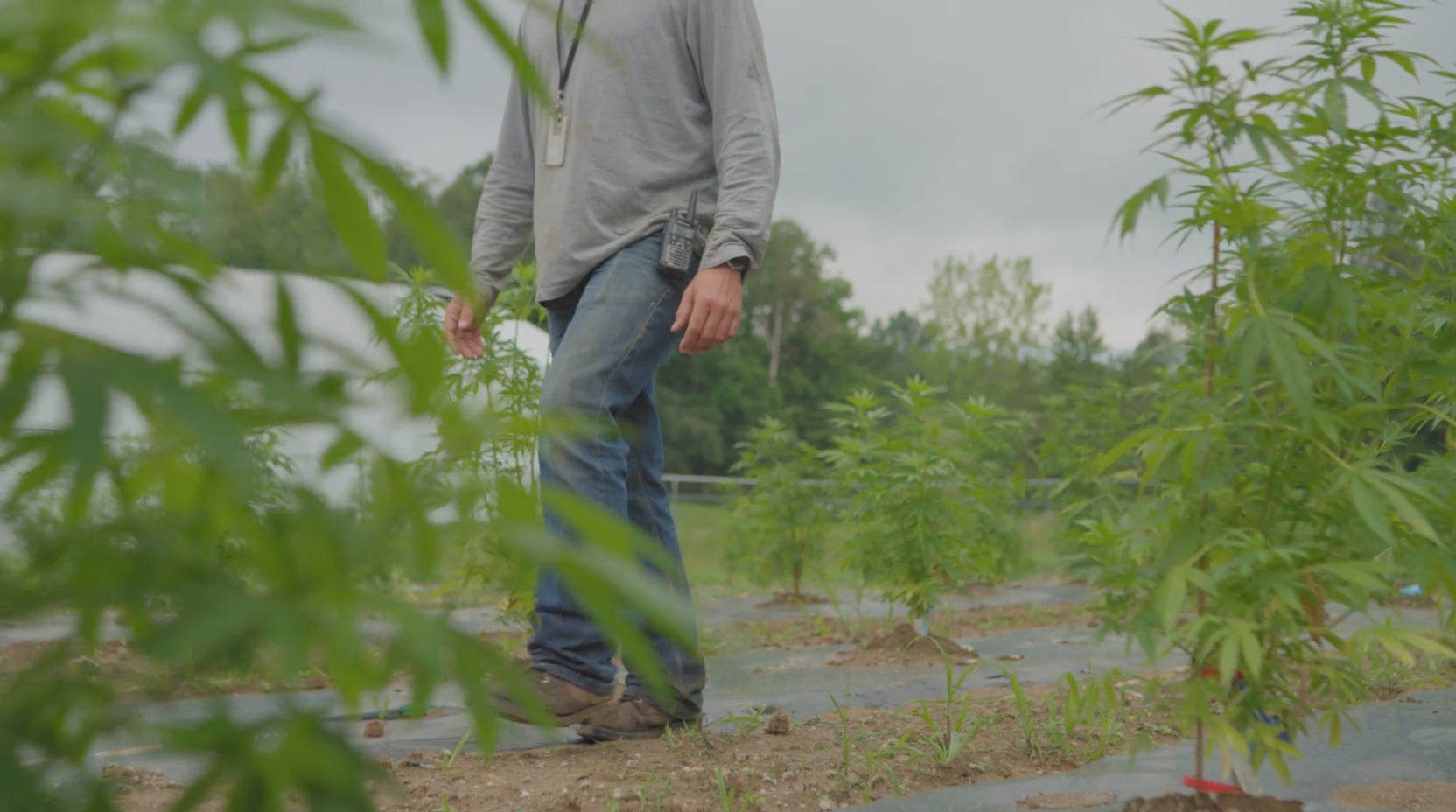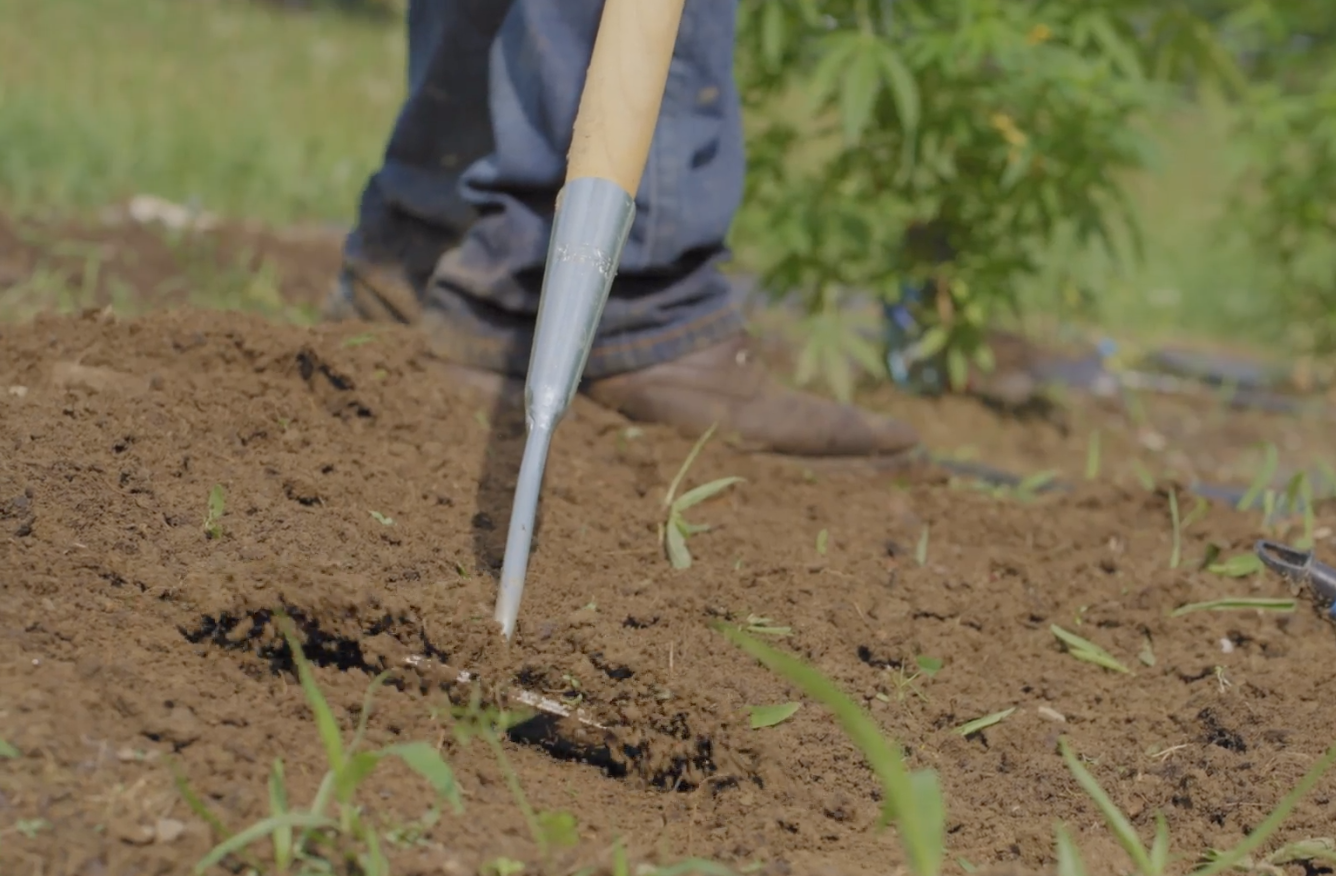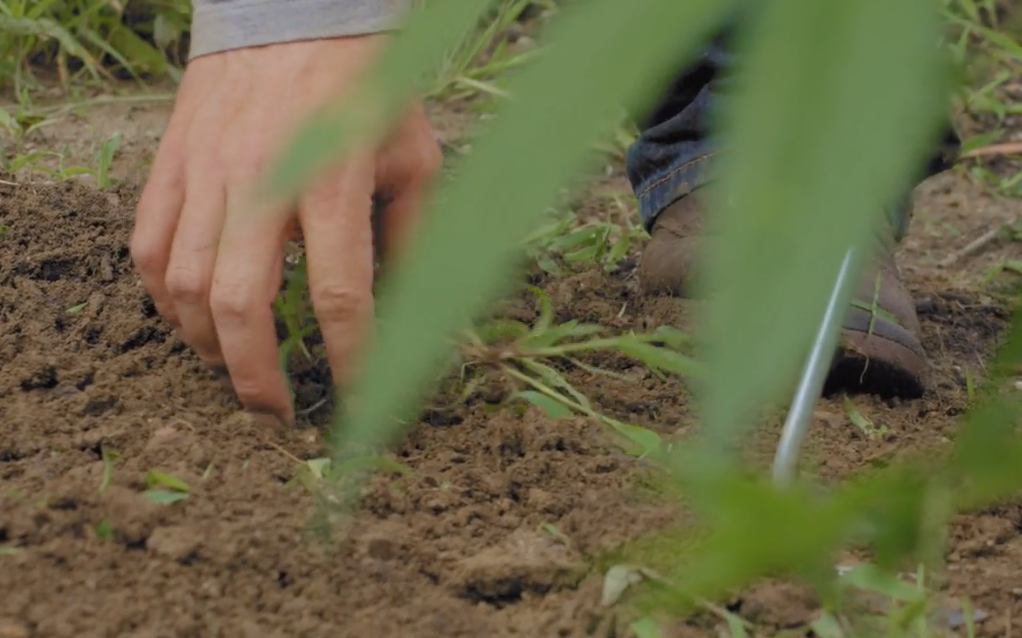
Our Cultivation Methodology
-

FARM-GROWN
Our cannabis is grown on farms, not in labs. Our crew keep farmers' hours, and their eye on the weather.
-

SUN & SOIL, WIND & RAIN
Our plants are rooted in the native Berkshires soil, and seasoned to perfection by spending their days and nights out in the elements.
-

LOCAL TERROIR
It's not just for wine. The soil, climate, and the biodiversity of the farm are all elements of the world-class terroir that produces our complex cannabis.
-

LOW CARBON FOOTPRINT
By growing in the sunlight, and using rain capture and drip irrigation, we keep our carbon footprint and water consumption to a minimum.
-

100% NATURAL
We grow our cannabis using regenerative practices in natural sunlight and native soil, and use only OMRI certified organic fertilizers. No herbicides, fungicides or anythingicides whatsoever.
-





The Process
Observing and Analyzing the Land:
Our cultivation team spends a lot of time standing out in the fields, just taking things in. When we get set up on a new piece of land, they’re out there observing, smelling, and listening to everything. They get to know the topography of the land, the rockiness of the soil, the microclimate, the prevailing winds, and the unique characteristics of the place. Every farm is different. Successful farming depends on understanding the natural realities of the specific environment and operating within it.
Science-Based Analysis:
We test the soil and get it analyzed regularly by agronomists. Whereas indoor, hydroponic grow labs start with a blank slate and just add water and chemicals, EOS starts with natural, native soil. This means that we have to take the time and effort to test soil from all over the farm to understand its chemical and physical makeup and characteristics, and figure out how to work with it. If we detect a deficiency of some nutrients or minerals, we need to devise a plan to amend the soil with organic fertilizers to get it in balance. Modern science-based analysis allows us to bring precision to this process.
Building Healthy Soil:
Healthy soil isn't something to take for granted. It's something that must be nurtured and maintained over time. One of the issues with industrial farming is that it strips nutrients from the soil, without putting them back in. The goal of regenerative farming is to consistently put nutrients back into the soil, maintaining healthy biodiversity over the long term.
At EOS Farms, we're obsessed with microbes, microorganisms, and soil building. We protect our soil over the winter by planting cover crops like clover and rye, and till them under the soil in the spring to naturally add nitrogen and organic matter. We also do the little things for our soil, like using only biodegradable row covers instead of black plastic. And of course, we only use OMRI certified organic products in the fields.
Embracing the Elements:
Contrary to what some people will tell you, cannabis does grow outdoors in New England. And you know what? It grows well. It's not in spite of the elements, it's because of them. You know what wind does to a cannabis plant? It strengthens the main stem, so the plant can support giant colas (buds) as the season goes on. Rain storms also serve to make the plant heartier and healthier. And natural sunlight provides the full spectrum of light, which is far more effective than grow lights for producing healthy, potent plants.
Growing plants out in the elements isn't the favorite choice of investors because it's harder to predict, harder to control, and you can't crank out industrial buds 24/7/365. But it is the choice of cannabis connoisseurs who understand that natural processes produce the bud with the best flavors and effects.
Supporting Healthy Ecosystems:
A farm isn't a factory. It's an ecosystem. And we're serious about maintaining a healthy ecosystem which will continue to provide a great home for our crops for years to come. We proactively support a healthy ecosystem through a number of regenerative farming practices:
For example, we plant companion crops to increase soil fertility and attract native predatory insects. We also introduce additional beneficials to assist with the control of detrimental bugs. And of course, we use only certified organic fertilizers and no pesticides, fungicides, or herbicides.
Water Conservation:
We use a rainwater capture system to collect rainwater in barrels, which we can then use to water the crops. When we need additional water beyond that, we use a drip irrigation system to cut down on water waste and evaporation.
Energy efficient greenhouse:
We start our seedlings in the spring, in a greenhouse with a retractable roof that lets in natural sunlight. This saves us a lot of money and carbon emissions as compared to the high-powered lights used in indoor cannabis grows. The greenhouse is cooled using an energy-efficient Air Handler system instead of A/C.


